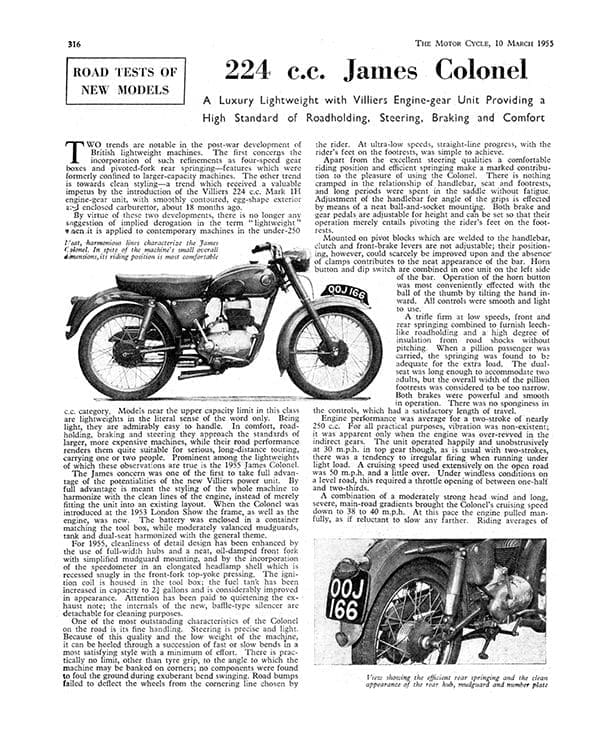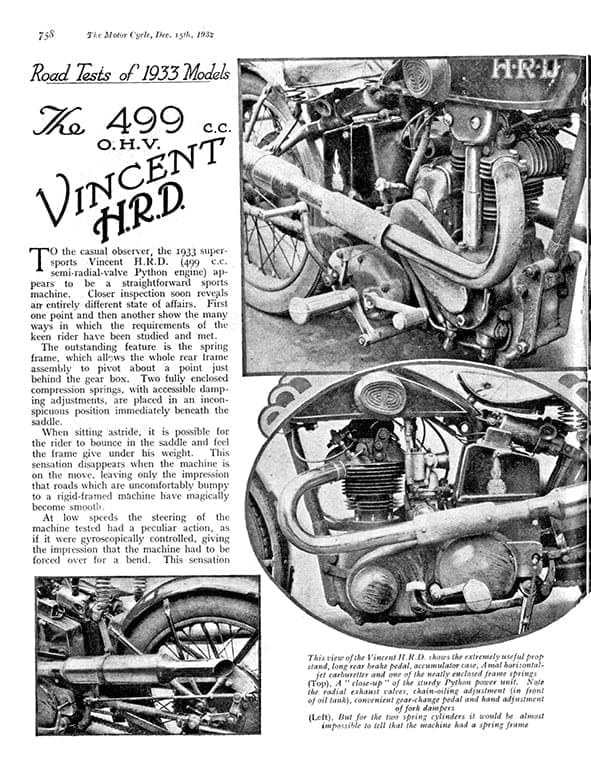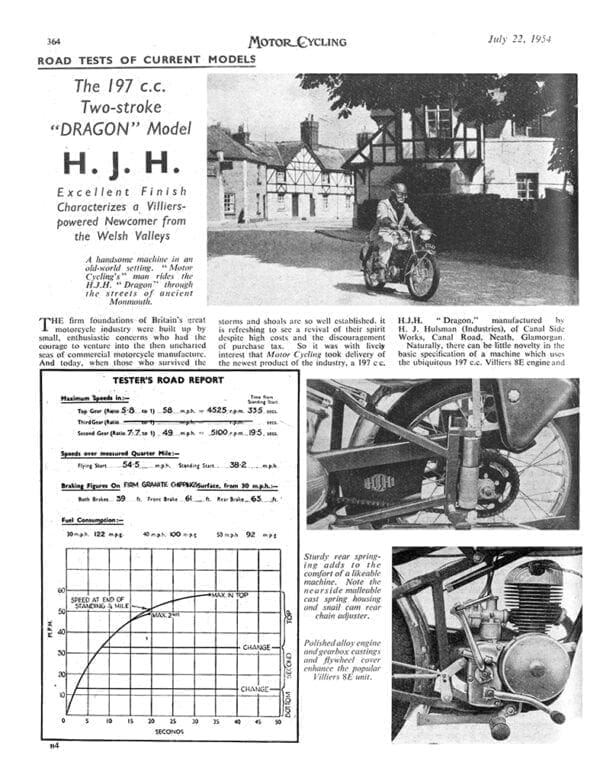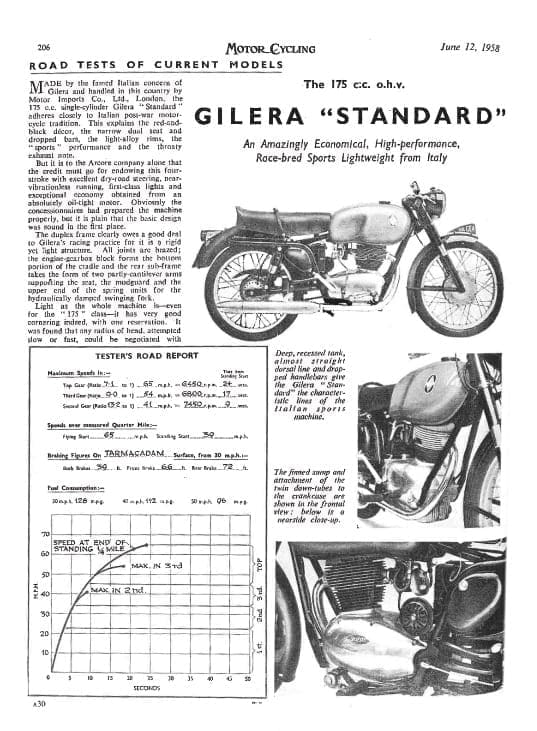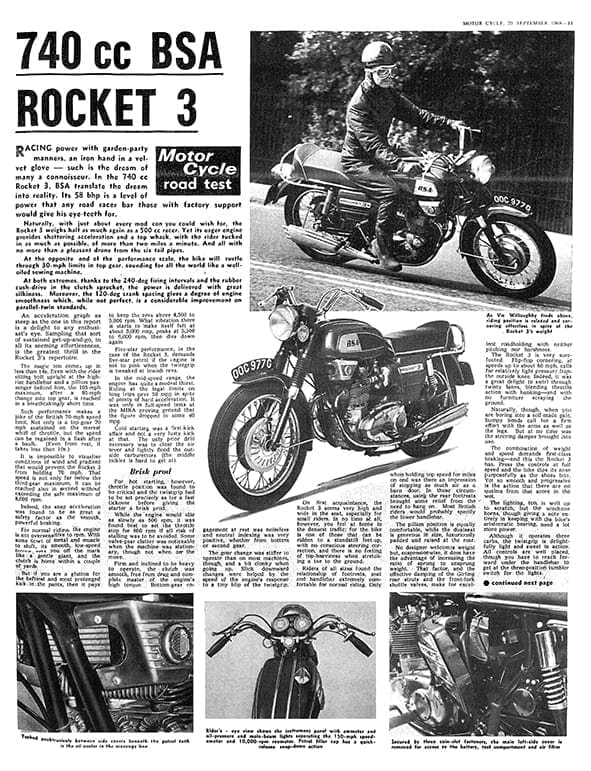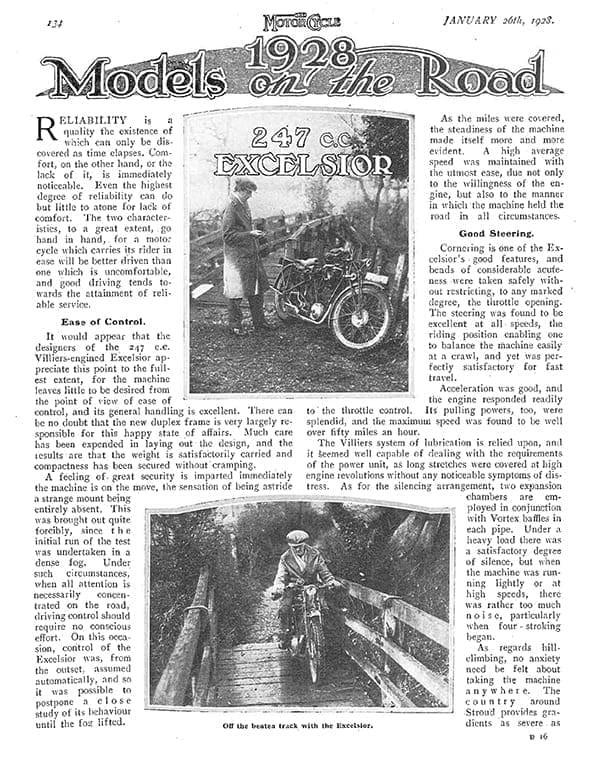Description
A luxury lightweight with Villiers engine-gear unit providing a high standard of road holding, steering, braking and comfort
Two trends are notable in the post-war development of British lightweight machines. The first concerns the incorporation of such refinements as four-speed gear boxes and pivoted-fork rear springing features which were formerly confined to larger capacity machines. The other trend is towards clean styling, a trend which received a valuable impetus by the introduction of the Villiers 224 c.c. Mark 1H engine-gear unit, with smoothly contoured, egg-shape exterior and enclosed carburettor, about 18 months ago.
By virtue of -these two developments, there is no longer any suggestion of implied derogation in the term ” lightweight” when it is applied to contemporary machines in the under-250 c.c. category. Models near the upper capacity limit in this class are lightweights in the literal sense of the word only. Being light, they are admirably easy· to handle. In comfort, road holding, braking and steering they approach the standards of larger, more expensive machines, while their road performance renders them quite suitable for serious, long-distance touring, carrying one or two people. Prominent among the lightweights of which these observations are true is the 1955 James Colonel.
The James concern was one of the first to take full advantage of the potentialities of the new Villiers power unit. By full advantage is meant the styling of the whole machine to harmonize with the clean lines of the engine, instead of merely fitting the unit into an existing layout. When the Colonel was introduced at the 1953 London Show the frame, as well as the engine, was new. The battery was enclosed in a container matching the toolbox, while moderately valanced mudguards, tank and dual seat harmonized with the general theme.
Advert
 Enjoy more The Classic MotorCycle reading in the monthly magazine. Click here to subscribe.
Enjoy more The Classic MotorCycle reading in the monthly magazine. Click here to subscribe.


